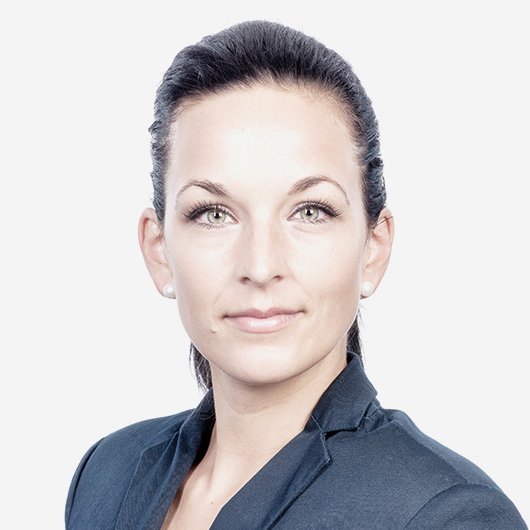High energy prices and the difficult-to-understand implementation of EU regulations for chemicals continue to pose challenges for the integrated production of Alzchem Group AG
EU Member of Parliament Maria Noichl visits Alzchem
Trostberg - Under the leadership of Maria Noichl, Member of the European Parliament, and SPD district chairman and state parliament candidate Sepp Parzinger, a delegation from the Trostberg SPD local association visited Alzchem Group AG. Together they had come to the Trostberg chemical park to find out on site about the many current challenges facing the innovative specialty chemicals company in the Bavarian chemical triangle.
Andreas Niedermaier, Chairman of the Board of Alzchem Group AG, and CSO Dr. Georg Weichselbaumer introduced the company and, with a view to the currently determining risk factors - the continuing threateningly high energy prices compared to international competition and the uncertainties associated with the difficult-to-understand implementation of EU chemicals regulation - explained the far-reaching effects that threaten the activities of the Alzchem Group.
"As an energy-intensive company, we feel a particular responsibility to significantly reduce our CO2 footprint," says Niedermaier. "Our goal is climate neutrality." To this end, he said, the company has already implemented numerous measures and is well on its way - but it is now having to pay dearly for this commitment: "Our production is based on electricity, while we largely do without fossil fuels such as natural gas. But now the forecasts for electricity show that we will have to pay more in some months than we used to for the whole year." As far as possible, we have to pass on the increased production costs to our customers - with extensive consequences: For example, in the case of our traditional product, calcium cyanamide fertilizer, which farmers can then no longer afford. This triggers a spiral of falling yields and declining profitability in agriculture. This example is not a pessimistic future scenario, Niedermaier emphasizes. "This is already the reality. Alzchem, like all industry, needs a stable internationally competitive calculation basis for electricity - ideally a resilient industrial electricity price as is already common in other European countries. The German government's electricity price brake would actually have been a helpful solution here, but unfortunately it contradicts European requirements in Germany and is therefore largely useless." Noichl is more than aware of the importance of the energy issue. "Environmentally friendly energy must become more affordable in order to promote the competitiveness of German industry. That is perfectly clear to me. In addition to the urgent expansion of renewable energies here in Bavaria, I was already convinced as a member of the Bavarian state parliament that energy from the windy north urgently needs to reach the south." Parzinger fully agreed with Noichl on this. "It is important that the industry here in the region and especially at the Trostberg site has created high-quality standard-wage jobs, which must also be maintained. That's why investment security for industry is so important." The issue of affordable energy is also a key point for Parzinger. "As the example of Burghausen in the Altötting district shows, projects for the urgent expansion of renewable energies can now also be launched here in the region. I am committed to ensuring that this also happens in Traunstein County."
Added to this is the impending ban on the oldest mineral nitrogen fertilizer, calcium cyanamide, in agriculture by the EU authorities. "Such a ban not only contradicts over a hundred years of practical experience, it also demonstrably lacks any scientific basis. In addition, it would have a massive negative impact on crop yields, soil health and would lead to increasing climate-damaging emissions," explains Weichselbaumer. Martin Strenner, board member of the Trostberg SPD local association and a graduate engineer in agricultural sciences, commented that long-term studies showed no environmentally harmful effects. "A long-term study conducted by the Technical University of Munich at the Weihenstephan site confirmed that there were no environmentally harmful effects of the calcium cyanamide fertilizer."
Noichl said she would look closely at the issue of calcium cyanamide fertilizer.
Weichselbaumer also emphasized the further consequences of a ban on the production of calcium cyanamide "A ban would also have serious consequences beyond agriculture." This is because carbide, the basis of Alzchem's Verbund production, and the calcium cyanamide made from it form the basis for numerous specialty chemicals that are needed as raw materials and precursors in various key industries - for example, in the pharmaceutical and automotive industries. "Our integrated production along the NCN chain is the only one of its kind in Europe and outside China," Weichselbaumer said. "If we endanger our domestic production network through ideologically motivated actions, then our dependence in essential areas on Chinese suppliers will increase. The current supply crisis for pharmaceuticals and the experience during the Corona pandemic have clearly shown us, after all, that we Europeans cannot allow this to continue." Noichl said in this regard "The issue of dependencies on China is also known to the EU Commission, which is why work is also being done to change framework conditions for European industry in such a way that international competitiveness is strengthened and Europe thus frees itself from dependencies on China." Noichl also assured that she will contact the Bavarian Minister of Economic Affairs, Hubert Aiwanger, to draw his attention to the difficult situation of the chemical industry in the southeast Bavarian chemical triangle. This way, he too can stand up for the industry with its thousands of jobs.

